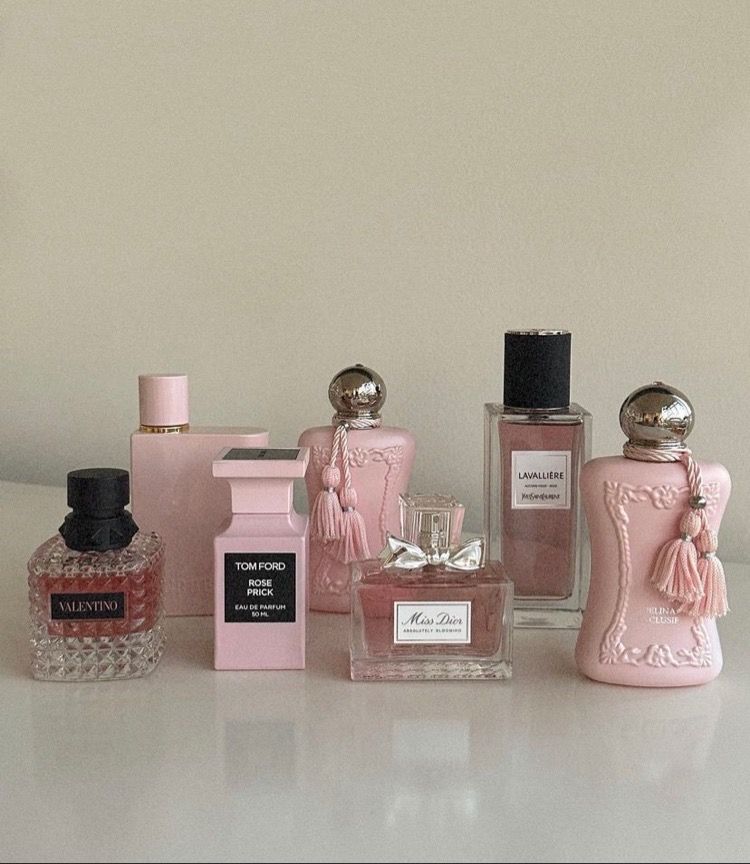
Choosing the right perfume is important for several reasons. Firstly, fragrance is a powerful tool that can greatly influence our moods and emotions. The right scent can make us feel confident, energized, and attractive, while the wrong one can make us feel uncomfortable or even give us a headache. Secondly, perfume is often considered a personal signature and can make a strong impression on those around us. It can reflect our personality, style, and even memories or experiences. Finally, perfume can be a significant financial investment, and choosing the wrong fragrance can lead to wasted money and regret. Therefore, taking the time to find the right perfume that suits your preferences, style, and body chemistry can have a positive impact on your daily life and overall well-being.
The article “Aromatic Adventure: How to Navigate the World of Perfume and Find Your Perfect Match” will provide readers with a step-by-step guide to choosing the right perfume. The article will begin with an introduction to the importance of selecting the right fragrance and will then provide an overview of the basics of perfume classification, fragrance notes, and fragrance families. The article will then help readers identify their fragrance preferences, offer tips for testing and sampling perfumes, and provide information on various fragrance families and which personality types may be drawn to each one. Finally, the article will guide readers through the process of choosing their perfect match and offer advice on caring for their perfume.
Understanding Perfume Basics
Perfumes are classified based on their concentration of fragrance oils and alcohol. Here’s a brief overview of the most common perfume classifications:
- Perfume (or parfum): This is the most concentrated form of fragrance, typically containing between 15% and 40% fragrance oils. Because of its high concentration, perfume is the most long-lasting and expensive form of fragrance.
- Eau de Parfum (EDP): EDP contains a lower concentration of fragrance oils than perfume, usually around 10% to 20%. It still has a strong and long-lasting scent but is less expensive than perfume.
- Eau de Toilette (EDT): EDT has a lower concentration of fragrance oils than EDP, usually around 5% to 15%. It is less long-lasting but more affordable than EDP.
- Eau de Cologne (EDC): EDC has the lowest concentration of fragrance oils, usually around 2% to 4%. It has a lighter scent and is often used as a refreshing body splash.
It’s important to note that the concentration of fragrance oils doesn’t necessarily determine the quality of a perfume. The scent and overall quality of a fragrance are determined by a combination of factors, including the type of fragrance notes and the quality of the ingredients used.
Fragrance Notes:
Fragrance notes refer to the individual scents that make up a perfume. There are three types of fragrance notes: top notes, middle notes, and base notes.
- Top notes: These are the initial scents that are detected when the perfume is first applied. They are usually light, fresh, and citrusy scents that evaporate quickly, usually within 10-15 minutes.
- Middle notes: Also known as heart notes, these scents are more prominent than top notes and emerge once the top notes have evaporated. Middle notes typically last for several hours and are usually floral, fruity, or spicy scents.
- Base notes: These are the scents that emerge after the middle notes have evaporated, typically several hours after the perfume has been applied. Base notes are typically warm and musky, and they help anchor the fragrance to the skin.
Fragrance Families:
Fragrance families refer to the different categories of scents that perfumes are grouped into. There are several fragrance families, including:
- Floral: Fragrances in this family are typically composed of one or more types of flowers, such as rose, jasmine, or lily. They are usually light and feminine scents.
- Woody: These fragrances are characterized by scents that come from woods, such as sandalwood, cedarwood, and patchouli. They are typically warm and earthy scents.
- Spicy: These fragrances are composed of spices such as cinnamon, nutmeg, and clove. They are usually warm and rich scents.
- Oriental: This family includes fragrances that are inspired by the scents of the Middle East, such as amber, musk, and vanilla. They are typically rich, warm, and exotic scents.
- Citrus: These fragrances are composed of scents from citrus fruits such as lemon, bergamot, and orange. They are usually fresh and light scents.
- Aquatic: This family includes fragrances that are inspired by the scent of the ocean, such as seawater, salt, and marine plants. They are typically fresh and clean scents.
Understanding fragrance notes and families can help you identify scents that you enjoy and guide you in choosing a perfume that suits your preferences.
Identifying Your Fragrance Preferences
To identify your fragrance preferences, you can start by asking yourself a few questions:
What scents do I typically gravitate towards in my daily life? Do I prefer floral scents, spicy scents, or something else?
What memories or emotions do certain scents evoke for me? For example, does the scent of lavender remind you of your grandmother’s garden or the ocean scent remind you of a favorite vacation?
What type of environment do I want to wear the perfume in? Do I want a scent that is light and refreshing for daily wear or something deeper and more complex for special occasions?
Once you have a sense of your fragrance preferences, you can start testing different perfumes that match those preferences. Try sampling different fragrances by spritzing a small amount on your skin or using scent strips to get a sense of how the fragrance develops over time.
When testing perfumes, it’s important to give each fragrance time to develop on your skin. Top notes will evaporate quickly, so be patient and wait for the middle and base notes to emerge. It’s also a good idea to test perfumes in different environments to see how they perform in different temperatures and humidity levels.
Choosing the right perfume is a personal choice, and what works for one person may not work for another. By identifying your fragrance preferences and testing different perfumes, you can find a scent that feels uniquely “you” and helps you feel confident and beautiful.
Choosing Your Perfect Match
Once you have identified your fragrance preferences, you can use this information to choose a perfume that fits your personality and preferences. Here are some tips to help you choose your perfect match.
- Look for perfumes that match your fragrance family preferences. If you know you prefer floral fragrances, look for perfumes that are categorized in the floral family. Similarly, if you prefer woody or spicy scents, focus your search on those fragrance families.
- Consider the occasion: Think about where and when you’ll be wearing the perfume. For example, if you’re looking for a perfume for everyday wear, you may want to choose something that is lighter and more refreshing. If you’re looking for a perfume for a special occasion, you may want something deeper and more complex.
- Test the perfume on your skin: Testing a perfume on your skin is the best way to see how it interacts with your body chemistry and how it develops over time. Give the perfume time to settle on your skin and see how it smells after a few hours. If you’re not sure about a scent, try it a few times in different environments before making a decision.
- Consider the intensity: Perfumes come in different intensities, from light and fresh to strong and bold. Consider how intense you want the fragrance to be and choose a perfume that matches your preference.
- Follow your gut: Ultimately, choosing a perfume is a personal choice, and you should choose a scent that feels right to you. Don’t be swayed by marketing or other people’s opinions. Trust your instincts and choose a perfume that makes you feel confident and beautiful.
By using the information you’ve gathered about your fragrance preferences, you can narrow down your search and find a perfume that truly matches your personality and style. Don’t be afraid to experiment and try new scents until you find your perfect match.
Now the question is where to buy?
We wholeheartedly recommend the Dossier website. Dossier is a company that offers a collection of perfumes that are designed to be similar to well-known designer fragrances but at a more affordable price point. They are also marketed as 100% vegan and cruelty-free. Customers can purchase their perfumes directly from their website. We highly recommend you to try the flavor of Miss Dior Blooming Bouquet Perfume. This perfume is designed to have a similar scent profile to the original fragrance, but without the high price tag. Additionally, this particular fragrance is marketed as being vegan and cruelty-free, which means that it doesn’t contain any animal-derived ingredients and hasn’t been tested on animals. Citrus Peony, inspired by Dior’s Miss Dior Blooming Bouquet, is a fragrance that pays homage to the scents of rose and peony flowers. The fragrance is designed to capture the delicate, soft, and rosy aroma of peonies. At the top of the fragrance, you’ll experience a vibrant blend of mandarin and bergamot, creating a fizzing effect. As the fragrance develops, it softens with fresh notes before settling on a base of white musk and mild fruity notes.
Citrus Peony is a tender and lively fragrance that evokes the innocent radiance of the first days of spring bloom. It’s a fragrance that’s perfect for those who enjoy fresh, floral scents that aren’t too overpowering. As an impression of Dior’s Miss Dior Blooming Bouquet, Citrus Peony offers a more affordable alternative without compromising on quality.
It’s important to note that while Dossier’s perfumes may be similar in scent to more expensive designer fragrances, they are not exact replicas and may have slight variations in their composition. Additionally, personal preference plays a significant role in choosing a perfume, and what works for one person may not work for another.
Caring for Your Perfume
Caring for your perfume properly can help to prolong its longevity and ensure that it continues to smell fresh and vibrant. Here are some tips for taking care of your perfume:
Perfume should be stored in a cool, dry place away from direct sunlight and extreme temperatures. This will help to prevent the fragrance from breaking down or becoming oxidized.
The cap on your perfume bottle serves an important purpose – it helps to keep air out of the fragrance. Leaving the cap off for extended periods of time can cause the fragrance to deteriorate more quickly.
Many people think that shaking their perfume bottle will help to “mix” the fragrance and make it smell better. However, shaking the bottle can actually cause air bubbles to form in the fragrance, which can lead to a less potent scent.
When applying your perfume, it’s best to spray it onto your pulse points – areas like your wrists, neck, and behind your ears. These areas tend to be warmer, which can help to activate the fragrance and make it smell stronger.
Perfume is meant to be used, not just displayed. Using your perfume regularly can help to prevent it from going bad and ensure that it smells fresh every time you wear it.
By following these tips, you can help to ensure that your perfume continues to smell great for as long as possible.
Conclusion
In conclusion, choosing the right perfume can be a challenging task, but with a bit of knowledge, it can be a fun and rewarding experience. In this article, we’ve covered important points such as the different perfume classifications, fragrance notes, and fragrance families. We also discussed how to identify your fragrance preferences and choose the perfect match for your personality and preferences.
Additionally, we introduced Dossier, a brand that offers vegan and cruelty-free fragrances that are inspired by well-known scents, but at a more affordable price point.
We also emphasized the importance of caring for your perfume properly to ensure it lasts longer and continues to smell great. Ultimately, we encourage readers to try new fragrances and enjoy the journey of finding their perfect match. With the right fragrance, you can express your personality, evoke memories, and enhance your overall mood and confidence.
We hope that this article has provided valuable insights into the world of perfumes and how to choose the right fragrance for you. By following the tips and guidelines shared in this article, you’ll be better equipped to navigate the world of fragrances and make informed decisions about your perfume choices. If you found this article helpful, please consider sharing it with your friends and family who might also benefit from this information.
Let’s spread the joy of perfumes and help everyone find their perfect scent!



